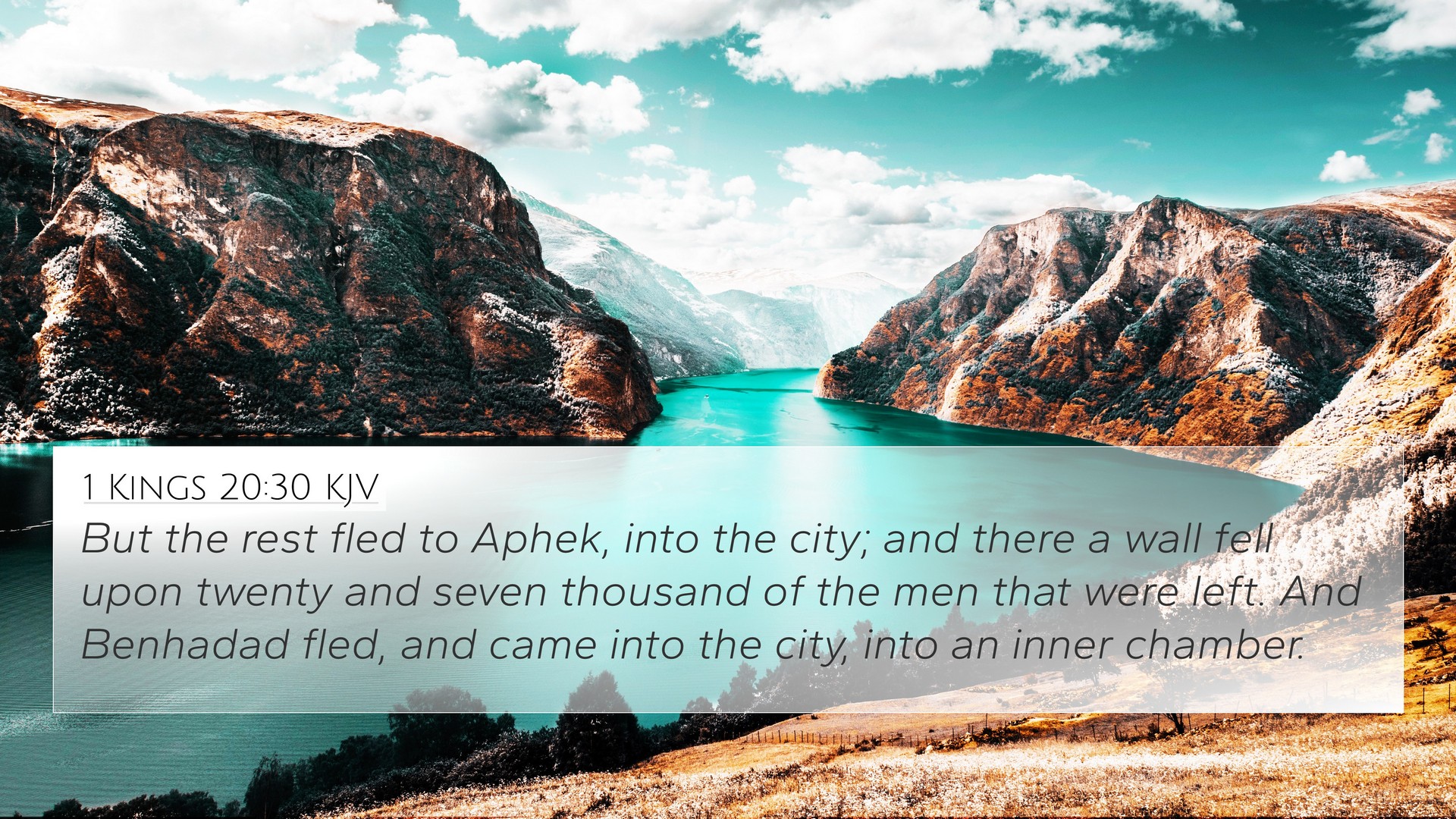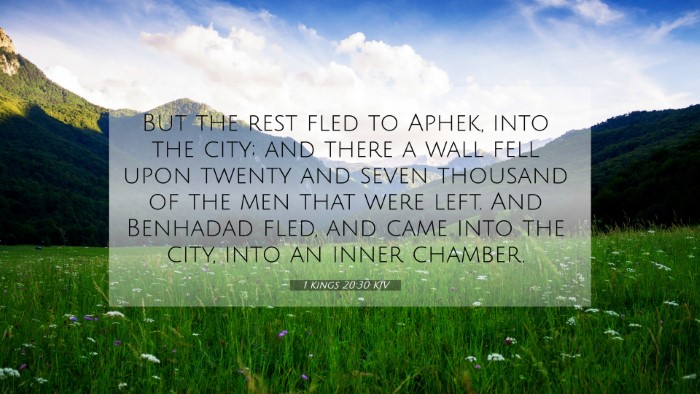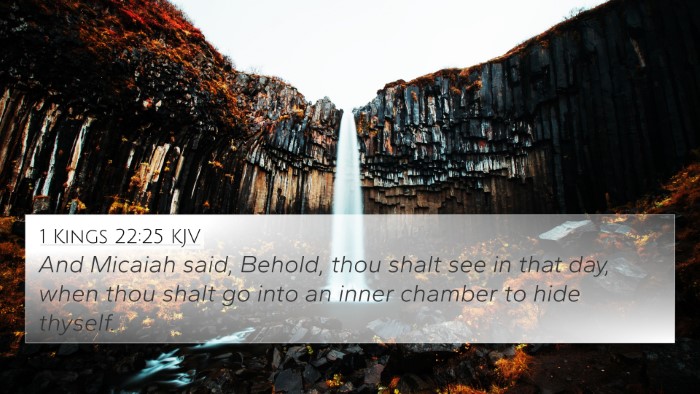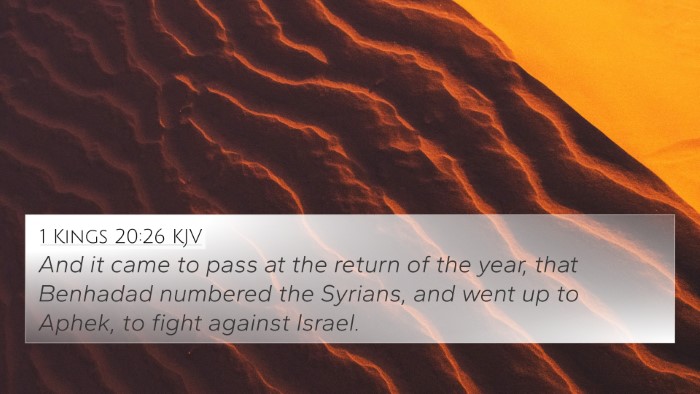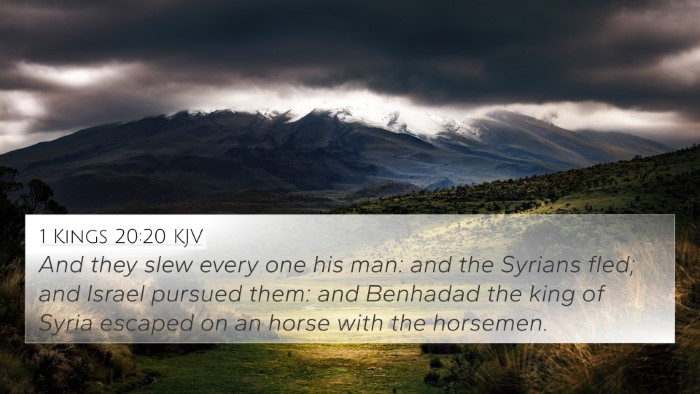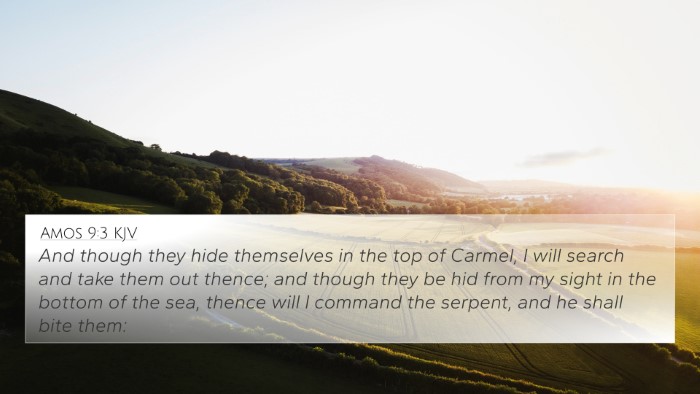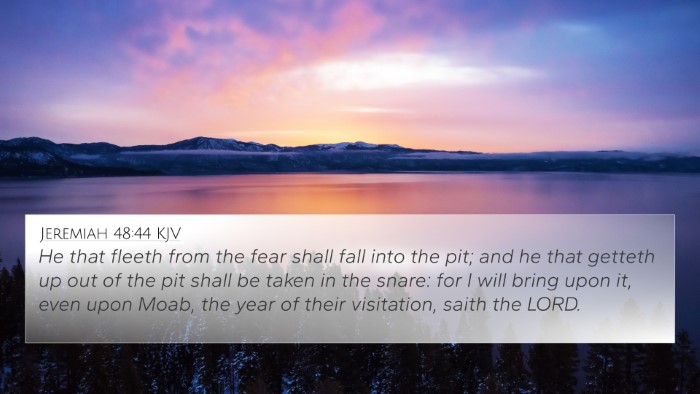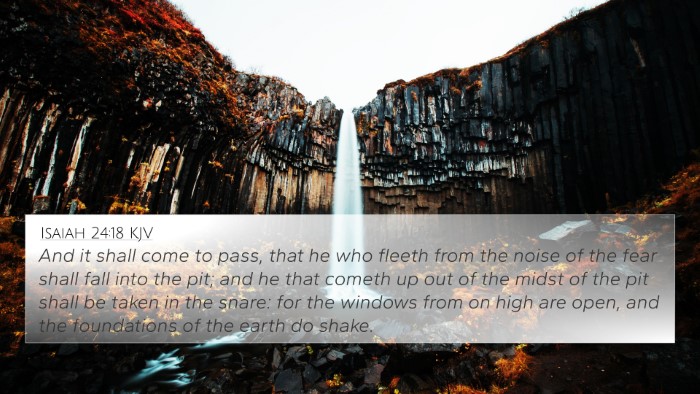1 Kings 20:30 states,
"But the rest fled to Aphek, into the city; and there a wall fell upon twenty-seven thousand of the men that were left. And Ben-hadad fled, and came into the city, into an inner chamber."
This verse occurs within the historical narrative regarding the continued conflict between Israel and Aram. It illustrates the devastating fallout of the battle, emphasizing the themes of judgment and divine sovereignty.
Summary of the Verse Meaning
According to Matthew Henry, this account shows the inevitable consequences of rebellion against God's will. Ben-hadad’s initial confidence contrasted starkly with the calamity that befalls his army when they ran in fear. The wall falling on the fleeing soldiers signifies how fate can turn in an instant, often without warning.
Albert Barnes draws attention to the significance of Aphek, a city often associated with pivotal military encounters in biblical history. The destruction of 27,000 men underscores the severe losses suffered due to pride and defiance, suggesting a divine reprimand for the Arameans.
Adam Clarke elaborates on the concept of 'inner chambers' where Ben-hadad sought refuge, highlighting the futility of human efforts to escape divine judgment. The inner chambers symbolize false security, contrasted with the external realities of God's justice.
Thematic Connections
- Divine Judgment: The events unfold as a clear indication of God’s judgment against those who oppose His people.
- Human Pride: Ben-hadad's reliance on his own strength leads to disaster, illustrating the folly of pride.
- Spiritual Warfare: The battle serves as a metaphor for the spiritual battles believers face against formidable foes.
- Seeking Refuge: The attempt of Ben-hadad to hide highlights humanity's instinct to find safety away from God.
- Consequences of Conflict: The verse serves to remind readers of the destructive outcomes stemming from enmity.
Bible Cross-References
Notable cross-references for deeper understanding of this verse include:
- 2 Chronicles 18:3: Parallel account regarding the defeat of Aram.
- 1 Kings 20:29: Contextual verse describing the armies’ placements.
- Isaiah 17:1: Prophecy concerning Damascus, connecting to the fate of Aram.
- Romans 11:22: Reflects the balance of God's kindness and severity, similar to divine judgment.
- Proverbs 16:18: "Pride goes before destruction," linking human pride to the defeat described.
- Hebrews 10:31: "It is a fearful thing to fall into the hands of the living God," echoing the vulnerability of Ben-hadad.
- 2 Kings 6:24: A later encounter showcasing God's judgment on Samaria's enemies.
Conclusion
The account in 1 Kings 20:30 provides profound insights for both historical context and spiritual implications. It invites further study into:
- Identifying connections between Old and New Testament teachings.
- Exploring comparative analysis between similar biblical narratives.
- Using tools for Bible cross-referencing to uncover thematic connections.
Understanding this verse through cross-referencing not only enhances comprehension but also fosters a deeper relationship with the wisdom contained within scripture. Engaging with the text alongside cross-reference guides ensures that readers receive a holistic view of biblical teachings, learning how disparate verses contribute to overarching themes of sovereignty, judgment, and humanity’s condition before God.
